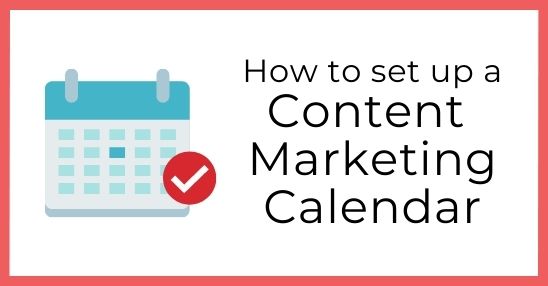
How to set up a content marketing calendar
You’ve been through the Get Started hub, you’ve learned about content marketing, you’ve created your content marketing strategy, and now you’re ready to go, right?
If you’re a one-man band, perhaps, but even so: it’s worth taking the extra time to set up a content marketing calendar. It will help you identify when you’re focusing on what, for who.
Why create a content calendar?
A content calendar is essentially an editorial calendar that helps you visualize upcoming posts, topics, and campaigns. Most marketers use one to make sure their campaigns align with business goals and that they have enough time to complete their work before publishing deadlines.
Creating content isn’t about quantity: it’s about quality. Setting up a schedule that can take not only what and when, but how and for who in account will really help you focus on that quality.
- helps everyone involved in the creation and publishing of content know what’s happening when it’s happening, and who’s responsible for it. It provides a full framework for content creation.
- provides structure to your content marketing process. You can plan out far in advance what topics you want to cover and when you want to publish them. This also gives you time to find writers or create other assets like photography or videos.
- is a central point for information about posts/content titles or ideas; campaign themes; blog post tags; author name/team member assigned; target keyword(s); publishing dates; links that need updating.

Check your analytics & strategy before creating a content calendar
It’s not just about what you create, but how you create it. To effectively plan for your content calendar, review your content marketing strategy again. Here you’ve decided who you’re writing for, what the goals are you want to achieve, and how to get there. Reflect this in the content calendar. What questions do you still need to answer for your audience? Are there any events or holidays in the year that you can target? The calendar will help you address the timelines of the implementation of your content strategy. You can also use data to determine when it is best to post or schedule an email campaign blast, a social media post, or a blog post. Targeting the calendar for events is part one, but you have sources of data from your social media engagement and email engagement that tells you how YOUR audience likes to get content: use that information to get the most response.Share your resource requirements
It’s really important that when you create your content marketing calendar and plan out your content ahead of time, you think about all of the resources required to actually get things done. Whether it’s a live stream that needs a webcam and internet, or a copywriter to help support your blog, you need to plan your resources to be able to deliver the content. A content calendar showing this (and if they have been sourced successfully) will help prevent things from falling through the cracks.
No matter how your team likes to work, a content calendar can help you better manage your workflow.
Whether you’re a team of one or 100 content creators, having an organized calendar for your content strategy can make it easier to manage your workflow and keep everyone on the same page. It allows you to clearly outline all of your upcoming pieces across channels and organize them within a system that makes sense for your business. In fact, a content calendar can work wonders in streamlining your entire process, helping you:- Keep track of all your content in one place
- Make sure you are publishing new content regularly
- Plan for the needs of any campaigns or projects throughout the year
Get support for your content marketing strategy
Not sure about your marketing strategy, or what content you should be making? Find out more on how I can support your content marketing and increase your visibility in search engines, or ask me your questions directly.

